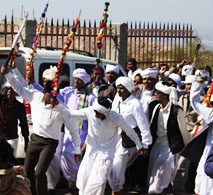
Rethinking Columbus: Towards a True People’s History
Source: Common Dreams
This past January, almost exactly 20 years after its publication, Tucson schools banned the book I co-edited with Bob Peterson, Rethinking Columbus. It was one of a number of books adopted by Tucson’s celebrated Mexican American Studies program—a program long targeted by conservative Arizona politicians.
The school district sought to crush the Mexican American Studies program; our book itself was not the target, it just got caught in the crushing. Nonetheless, Tucson’s—and Arizona’s—attack on Mexican American Studies and Rethinking Columbus shares a common root: the attempt to silence stories that unsettle today’s unequal power arrangements.


